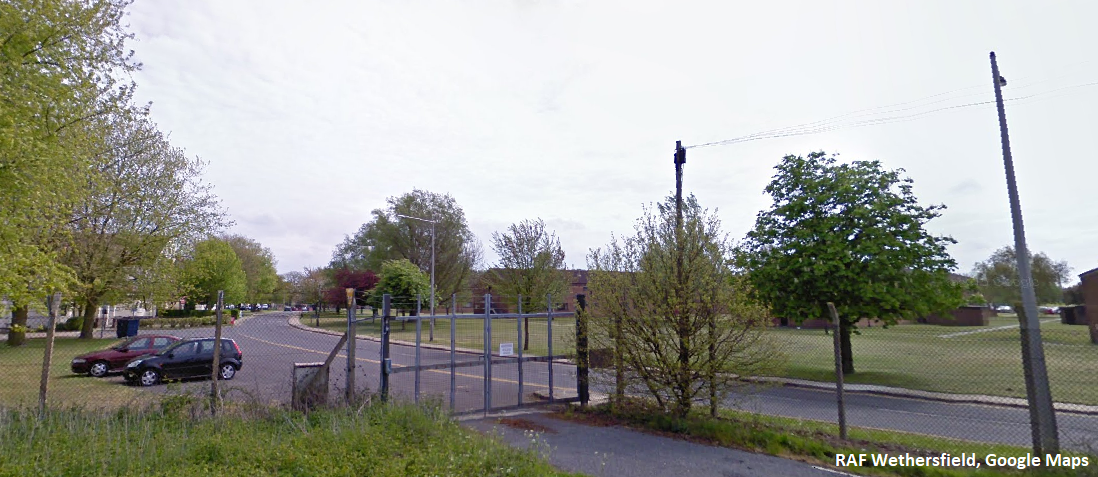News: Military Families On The Streets, Afghans Under Sheets
by TBG

Second-Class Citizens
Across the country, the ‘British’ government is using present and future taxation to accommodate vast numbers of those, who, by the government’s own admission, have often entered Britain illegally (Immigration Minister Jenrick confirms: # and Note 1) yet facilitated by their own hand. A welfare system created at the end of the Second World War to help secure the health and habitation of British people is increasingly being provided instead to alien peoples who are often adjudged as higher priorities for local housing and other services.
New Council Homes For Aliens
 While council housing is in short supply and new council builds rare, Michael Gove’s Department of Levelling Up, Housing and Communities (DLUHC) has earmarked £500+ million from taxation to build housing for refugees. EDIT: they have just announced £750 million just for Afghanis' homes alone. This was overseen by his senior civil servant Jeremy Pocklington, who has recently been moved over to driving the dangerous fad of ‘Energy Security and Net Zero’ instead, which could threaten British industry, further impoverish householders, and erode our national self-sufficiency. He has incidentally already been involved in helping to earmark £1.8 billion to ‘decarbonise homes’.
While council housing is in short supply and new council builds rare, Michael Gove’s Department of Levelling Up, Housing and Communities (DLUHC) has earmarked £500+ million from taxation to build housing for refugees. EDIT: they have just announced £750 million just for Afghanis' homes alone. This was overseen by his senior civil servant Jeremy Pocklington, who has recently been moved over to driving the dangerous fad of ‘Energy Security and Net Zero’ instead, which could threaten British industry, further impoverish householders, and erode our national self-sufficiency. He has incidentally already been involved in helping to earmark £1.8 billion to ‘decarbonise homes’.
As Gove’s policy has taken root, articles have been cropping up in local media as councils announce the new build jamboree. These councils are matching the government’s contributions with similar amounts from the council’s own funding through Council Tax and other receipts. Asylum seekers, many like the Afghanis with unrepresentatively large families, will be on the receiving end of the great government giveaway. Others with British roots finding themselves lower down the housing priority list will be much less fortunate and the native homelessness crisis also remains untouched.
These councils include Bradford, Hart, Boston, Mole Valley, West Berkshire, Stratford Upon Avon, South Kestevan, Greater London, Folkestone and Hythe, Birmingham, Tunbridge Wells, the list goes on.
Military Families Evicted
Alongside this policy, wide consternation is also being heard across many quarters from famous historians to political figures after it was reported that the RAF Scampton, the base for the Dambuster’s raids and until recently home of the famous Red Arrows, was to be repurposed to house foreign interlopers instead. West Lindsey Council was so alarmed that they are seeking to have the property listed to give it protected status, as plans to turn it into an education centre and museum for British schoolchildren are placed on hold.
More alarming still, as other active military sites are readied for foreign occupation including RAF Wethersfield in Essex, there serving military families have been told that they are to be moved out by the government, whilst being given no indication that “housing is available at alternative locations.” Among serving families, others who have for now been allowed to remain for the time being will find themselves in a strange blend of British military families living cheek-by-jowl alongside these new foreign residents and have advised media outlets that they have fears for their security and safety with “the women on the base - the army wives” reportedly “frightened to death” that these men “will be wandering around.”(2)

With the recent suggestion by the Home Office that they are preparing to end the hotel-based residence of foreigners and move them to military bases and ‘disused ferries’ instead, this eviction process can only surely accelerate.
The solution isn’t to reduce the financial costs to the population or the disruption to local residents but to reduce the number calling upon taxpayer support by removing them en masse from the country and by refusing to accept any more.
Notes:
1) Article 31 of the UN Refugee Convention 1951 states “The Contracting States shall not impose penalties, on account of their illegal entry or presence, on refugees who, coming directly from a territory where their life or freedom was threatened in the sense of article 1, enter or are present in their territory without authorization, provided they present themselves without delay to the authorities and show good cause for their illegal entry or presence.” The UN has sought to legally expand this ‘coming directly’ into traversing countless safe territories. Firstly, the British judiciary should not need to accept this expansiveness. Secondly , not applying penalties to illegal entry, doesn’t negate the illegal entry. Thirdly, those failing asylum applications are not protected by this expansive usage in Article 31 and should receive strong penalties as a wider disincentive. The relevant laws on illegal entry are as follows: Section 24 of the Immigration Act, 1971 (link) and Asylum and Immigration (Treatment of Claimants, etc. ) Act 2004, Section 2 (no passport, link) Not all those benefitting from this housing will have entered by clandestine means. This is particularly the case for Ukrainians, less so for Afghanis, many of whom have come in small boats, outside of the state’s Afghan Citizens Resettlement Scheme (ACRS) and Afghan Relocations and Assistance Policy (ARAP) scheme.